- Home
- Patrick Robinson
Barracuda 945 Page 6
Barracuda 945 Read online
Page 6
The NSA, with seven hundred active armed cops, has a twenty-four-hour command, control, and communications center. Under any kind of threat, it activates immediately a machine-gun-toting Emergency Reaction Team to “battle stations” covering all gates. A million-to-one fluke might allow an intruder inside the compound, but the chances of such a person ever being seen or heard from again are remote.
The Executive Protection Unit mounts a twenty-four-hour armed bodyguard on the NSA’s Director. And up on the eighth floor of the massive one-way glass walls of the OPS-2B Building, Admiral George R. Morris was still at his desk when the Duty Officer from the Military Intelligence Division, Army Captain Scott Wade, nodding cheerfully to the two policemen on duty outside the door, tapped softly and let himself in.
“’Evening, sir,” he said. “We just got a communication in from Langley. About that British SAS Officer gone missing in Israel. I thought you might want to see it right away.”
The two men were very familiar to each other, and the Admiral looked up from his desk. “Hello, Scotty,” he said. “Did they find him?”
“No, sir. No, they did not. And there’s been no hostage demand. They seem to have written that off as a possibility.”
“Hmmmmm,” replied Admiral Morris, reading the Daily Mail’s account with interest. “They sure as hell didn’t find him. Jesus Christ! The guy’s a Muslim.”
“Well, at least he used to be, sir. I’m not sure about that changing-religions bullshit. I always thought once a Muslim always a Muslim.”
“I guess that was the intention of the Prophet, Scotty,” said the Admiral, smiling. “But lemme ask you something. You spend most of your life looking at situations like this. And I guess we’ve suspected Major Kerman may have gone over to the other side, even if the Brits have confirmed nothing. But have you seen any evidence, or any signs at all, in the hundreds of pages of reports, that Major Kerman has defected to some Islamic Fundamentalist group?”
“Not really, sir. And no one’s ever actually said he did. At least not for sure. It’s only been speculation.”
“Yeah. I know. But just take a look at the treatment this big national newspaper in London has given this story. It’s cross-referenced on the front page, and inside they run this damn great tabloid spread, big headlines, pictures of Ray Kerman at school in Harrow, pictures of his parents, pictures of this Iranian dust hole he was born in. Christ, they got about five guys covering this.
“I’m telling you, Scotty, someone over in England thinks this really matters. Not someone on the newspaper, they’re just guessing, hoping to be right. But someone in Whitehall has alerted them. The Defence Ministry was concerned enough to quietly tip them off.
“Jesus, look at this coverage. There’s a clear implication this Kerman character gunned down two of his colleagues, SAS NCOs. Professionals. That makes him very dangerous indeed.”
“I agree with you, sir. I just wonder what group could have recruited him. I mean, this story implies he was in line possibly to command the entire SAS. Everyone thought so highly of him, and he had no money worries. Looks like his dad was going to give him a dozen oceangoing freighters when he finished with the Army.”
“People do some goddamned weird things, Scotty,” replied the Admiral thoughtfully. “Goddamned weird things.”
George Morris was a deceptive character, a big man, with a kind of lugubrious manner, deliberately slow in his responses, deliberately ponderous in his thinking, but rock steady in his judgments, and wryly amused at his ability to convey the impression he was a bit slow-witted.
Vice Admiral George Morris was in fact lightning-witted. A former Commanding Officer of the massive John C. Stennis Carrier Battle Group (CVBG), he had ruled his flotilla of twelve warships, eighty-four fighter-bomber aircraft, and thousands of men with a quiet certainty that was admired throughout the U.S. Navy. No one gets to command a modern CVBG without an intellect hovering close to genius level.
At the conclusion of his seagoing days he had been handpicked by the Big Man himself to move into the NSA. Then, one year ago, Vice Admiral Arnold Morgan had announced that George Morris would succeed him as Director, when Arnold Morgan moved to the White House.
Most new National Security Advisers to the President recommended things. Arnold Morgan did not recommend. He ordered. And when he ordered, people jumped. Sometimes on all five continents.
Admiral Morris sat comfortably in the Big Chair in Fort Meade, and everyone knew he was in it for as long as he wanted to be. Except, of course, when the Big Man from the White House came visiting and automatically walked straight in and sat right down at his old desk. It was as if Arnold Morgan considered he held both top jobs in National Security, rather than just the one at the right hand of the President.
“Scotty,” said Admiral Morris. “This is a goddamned interesting piece of journalism. Full of facts. And some of ’em may even be true.”
“Yes. I thought so, sir.”
“But I think enough of this is obviously true for us to make a pretty simple worst-case judgment.”
“Sir?”
“I think we got a fucking tiger out there. And he’s not on our side. This Kerman bastard has gone over the wall. No doubt in my mind.”
“Er, actually I think he went around the wall, Admiral.”
Big George paused, smiled. “Exactly so, Scotty,” he said at length. “Around the goddamned wall, right in the middle of Hebron. Right now it’s only a very uncomfortable possibility. But in my opinion, that’s where he’s gone. And that requires some action. Just in case it’s true.
“Scotty, I want you to tell someone to bring us some coffee. I need to think. And I think better when I’m awake…and when I have someone to talk to. How long you got?”
“I’m here till 0400, sir,” said Captain Wade, making for the door.
“That’s good. We’ll arrive at some good conclusions. Nice and steady.”
Ten minutes later, sipping black coffee in the relative calm of OPS-2B in the dead of night, the two men took a serious run at the problem Whitehall had so far not dared to name.
“If this guy is on the loose,” the Rear Admiral said slowly, “what’s the worst thing that could happen, from our point of view?”
“I guess he could train a group of Arab terrorists to hit at the Israelis with the same kind of efficiency the SAS use against their enemies.”
“Correct. That’s what he could do. And I guess we have to ask ourselves first, for whom would he be likely to do this?”
“I would say, sir, we are almost certainly looking at Hamas, the old Islamic Resistance Movement. Even now it’s still the main Palestinian fundamentalist political movement out there. The whole organization grew out of that Muslim Brothers outfit down on the Gaza Strip—every time we conduct a search for terrorist action in Israel it always leads to Hamas.”
“Remind me, Scotty. Who runs it?”
“That’s hard to know. The main leader was old Sheik Ahmed Yassin, but the Israelis popped him in the slammer ten years ago. Since then Hamas has been responsible for building a lot of Palestinian schools and hospitals, but every now and then they break cover and do something insane.
“My department thinks that since the various peace initiatives have broken down, Hamas has become a bigger and bigger player, challenging the PLO for pole position. Just about every big bang in downtown Jerusalem and Tel Aviv in the last few years has been directly linked to Hamas.”
“Who funds them?”
“Dunno, sir. They seem to be pretty damn good at funding themselves. And in my view they better be. Hamas is committed to the total liberation of Palestine and the creation of an Islamic state.”
Admiral Morris was pensive for almost a minute. Then he said carefully, “If this Major Kerman hopped around the wall in Hebron, there must have been an element of impulsiveness to his actions. Because the Palestinians had not staged, or even caused, a riot. It was the Israelis on the attack, the Arabs were kind of defending. T
hey had planned nothing.”
“That’s true, sir. But the military documents were very clear. Once the fight broke out, the Palestinians organized themselves very quickly. They brought up rockets and grenades and several machine guns. That’s Hamas, trust me. No one else could have pulled that off.”
“They got any known strength in Hebron?”
“Hell, yes, Admiral. They have, all through the Negev Desert, every town from Beersheba to Bethlehem and Jerusalem. The whole place is a tinderbox of Hamas armaments and enclaves. The Gaza Strip is worse. I’m telling you, the ole Hebrews have got their goddamned hands full down there.”
“Look, Scotty, it’s been several months since Major Kerman made an apparent rush for the desert. Has anything happened in that time to suggest Hamas has come under some inspired frontline leadership?”
“I don’t think so, sir. Just the usual rash of bombs and stuff. No firm evidence of anything unusual.”
“Well, I’ll tell you what. Someone is supplying these guys with heavy cash. Can you run a quick check and see if there’s been any big robberies in any of the Israeli cities. You know, Hamas may not even have been suspected. But ever since we’ve crippled their financing schemes these terror groups have had to turn to regular crime for funds, and the SAS are probably the best break-in guys in the world.”
“Sir, I’ll have to go check that in Security Ops. They got a very bright young Navy guy in there called Jimmy Ramshawe. He’s new, and he’s on duty tonight. I’ll get him buzzing on it. You know, there’s very few robberies in urban Israel. But if anything’s happened, Jimmy’ll pick it up.”
“See you back here in a half hour.”
“You got it, sir.”
One hour later, the two men were still waiting, up there in the quiet of the eighth floor, for the appearance of Lieutenant Ramshawe when the guard on duty outside tapped on the door, opened it, and said, “Lieutenant Ramshawe would like Captain Wade to go down to his office.”
“Guess I’ll get another cup of coffee, Scotty. Keep me awake if we’re going to be another hour.”
“Sir, I won’t be long. Fifteen, max.”
Admiral Morris already knew all about Lieutenant Ramshawe. In fact, he’d known his father, an Admiral from New South Wales who had ended up Military Attaché at the Australian Embassy on Massachusetts Avenue in Washington, D.C.
Young Jimmy had been born in America, but, surrounded by Aussies all his life, he still carried a distinct inflection of Australia in his speech. He could hardly have been more American. Schooled in Connecticut, he was an outstanding baseball pitcher, and had attended the Naval Academy at Annapolis, thus following his father into a career in dark blue.
At the Academy, he had excelled, demonstrating a brilliant IQ, and a capacity for infinitesimal detail. A tall, lanky, athletic boy, he also showed many of the qualities necessary to command a warship. He was tough, shrewd, and relentless in achieving his objectives.
It was his brain that set him apart, and his brain that tied him up. One of his instructors once expostulated, “Ramshawe! Jesus Christ, he could end up a second Captain Queeg, counting the fucking strawberries when all hell was breaking loose.”
But the U.S. Navy is expert at channeling talented people. And they quickly spotted the meticulous and tireless Ramshawe as possibly a natural-born Intelligence Officer. Which, unhappily was the last thing on Jimmy’s mind.
“Christ,” he said. “You mean all these bloody jokers in my class are going off to join warships, and leaving me behind in an office somewhere in that bloody Kremlin in the middle of Maryland? Get outta here.”
But the Navy was not joking. The Selection Boards got their way, offering the Lieutenant Commander a rare three-year tour of duty in the NSA, with a gilt-edged promise that if he really did not fit in, his career would be reviewed, with the intention of sending him to sea.
Lieutenant Ramshawe, urged by his father, agreed, and duly reported to Fort Meade, where he instantly made an impression for his watchfulness and ability to become accomplished at many tasks, all of which required weeks and weeks of study. He had been in the Security Ops Center just a few weeks, but already officers like Captain Wade knew all about him and his ability to pull up truly obscure information and make sense of it.
Fifteen minutes later, Captain Wade returned to the office of the Director. It was now well after midnight, and Admiral Morris was surprised to hear a real edge to Scotty’s voice.
“Ramshawe’s onto something,” he said. “Right now you can’t even open the door to his office because he’s working in the middle of about four tons of paper. But he’s located a couple of bank robberies in Israel, totally different in character, totally separate dates, separate cities, separate methods of entry and completely different circumstances. He says they’re the same, though, and he’ll be here to explain himself in the next ten minutes.”
Right on cue, ten minutes later the door opened and the duty guard ushered Lieutenant Ramshawe inside.
“G’day, Admiral,” he said, issuing the perennial Aussie greeting, and heaving a pile of maps and papers onto the Admiral’s conference table.
George Morris chuckled. “Hello, Lieutenant. They working you so hard you can no longer tell the difference between day and night?” he said.
“Matter of fact, yes,” said Jimmy. “But I can’t walk around saying ‘G’night, Admiral,’ can I?”
“Well, I guess not. How about ‘G’d evening’?”
“Nah. I’d sound like a bloody poofter.”
All three of them laughed at this interlude from the outback. George Morris found that lopsided Aussie directness engaging, political correctness being hurled to the four winds, in the renowned idiom of Arnold Morgan himself.
“Okay, sir. I expect Scotty here has told you I’ve found two bank robberies committed in Israel during the last six days of this past year. I’d prefer to go through them one at a time, that way you can see the similarities when they arise while I’m going through the second one.”
Admiral Morris nodded. And Jimmy spread before him a map of Jerusalem. In red pen he had marked off an area off Jaffa Road, a half mile northeast of the Old City Gate. “Right here, Admiral, in this high-rise, is the biggest U.S. bank in Israel, New York and Beirut Savings. It acts as a dollar clearinghouse.
“I’m not dead sure how it works, but every day millions and millions of U.S. dollars come into the country via the tourists, and somehow or another they all end up in New York and Beirut. I imagine this huge dollar amount is then wire-transferred back to the New York and Beirut headquarters in Manhattan. Then they systematically destroy the old currency bills, which saves them the trouble and headache of shipping them halfway around the world. Anyhow, at various times of the month there’s a bloody great stack of cash hanging around Jaffa Road.”
Captain Wade and the Admiral were silent, as Lieutenant Commander Ramshawe outlined the robbery.
“Okay, it’s Christmas Day, a Saturday, the holiday being observed by most people but not everyone. Even in the Holy Land, where Christ is regarded only as a prophet, there’s nothing open because it’s the Sabbath on Jaffa Road.
“At around 1530, would you believe, a bloody riot breaks out over a car accident. It quickly escalates and before anyone knows it there are twenty police cars and the IDF moving in to try and stop it. Right now we’re talking gas bombs, Molotovs, and Christ knows what.
“By 1800, it’s over. But it’s not until Monday morning they discover that sometime during the weekend, a gang hit the bank and got away with all the dollar bills, mostly old, all unmarked. Streuth! That caused a major investigation.
“And the upshot of that was as follows.” Ramshawe read from handwritten notes:
The gang got in through the roof, blowing off the lock to the fire stairs.
They knew where the alarm system was located, and they silenced it with a burst from an MP5 submachine gun. Put the bastard right out of action.
They knew where to find the
strong room, which houses the vault. They located the security system, which was not timed, dismantled it, then blew the vault open and took all the bread. Conclusion: an inside job.
They got away off the roof, because none of the doors or windows anywhere in the building had been opened.
A large military-type helicopter, probably a Sikorsky, and probably unmarked, was seen by several onlookers, taking off from the roof in the middle of the bloody riot, and everyone assumed it was to do with the bloody riot. But it wasn’t. And it was five days before anyone realized that.
“I think anyone would agree, there’s distinct overtones of a brilliantly planned heist. Military in its nature. Almost.”
“Where’d you get all this stuff, Lieutenant?” asked George Morris.
“Well, some of it was reported in the Israeli press. But I filled in a lot of details from a guy at Shin Bet. We got a pretty good quid pro quo with them.
“But you know, Admiral, it was never a big story, and I think the reason for that was because the bank never let on how much cash was stolen. They played it all down, because, of course, the bills were going to be destroyed anyway. You could argue that technically the bank lost no money. But bloody oath! The cash would be real handy for a bloke who wanted to do some heavy spending.”
“Sure would,” mused the Admiral. “Any take on how much cash was actually removed?”
“Not accurately. The police announced the sum stolen may have been six figures. Which sounds like not much for a bank robbery. But our guy in Shin Bet thinks it could have been $50 million, in used dollar bills.”
“Jesus,” said Scotty.
“Anyway, that story appeared in the Jerusalem Post on Tuesday morning, 28 December; small, inside page, six paragraphs, no photograph of the bank. No mention of $50 million, or of the helicopter. I also thought it was significant that the pro-Palestinian Jerusalem Times never did carry the story…and that brings us to robbery number two, which took place in Tel Aviv, thirty-eight miles away along the Sorek Valley.”

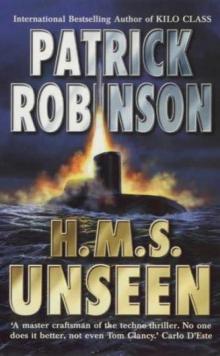 H.M.S. Unseen am-3
H.M.S. Unseen am-3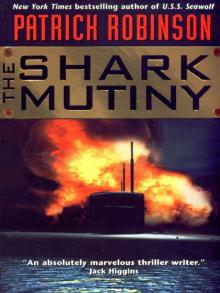 The Shark Mutiny (2001)
The Shark Mutiny (2001)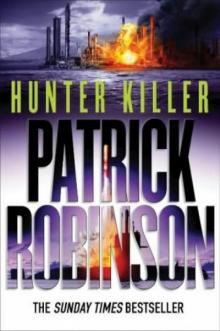 Hunter Killer am-8
Hunter Killer am-8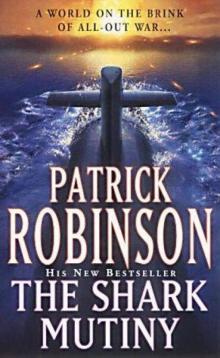 The Shark Mutiny am-5
The Shark Mutiny am-5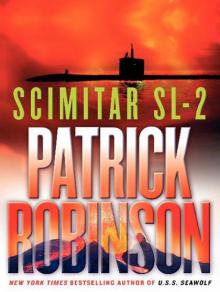 Scimitar SL-2
Scimitar SL-2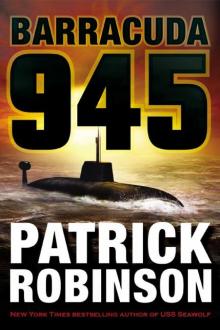 Barracuda 945 am-6
Barracuda 945 am-6 Hunter Killer
Hunter Killer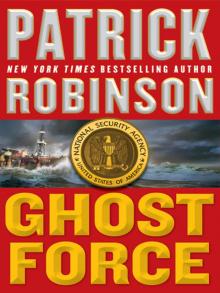 Ghost Force
Ghost Force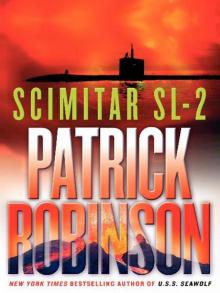 Scimitar SL-2 (2004)
Scimitar SL-2 (2004)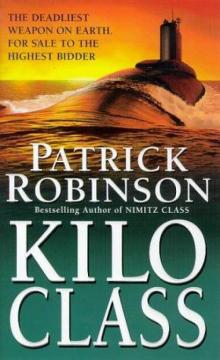 Kilo Class am-2
Kilo Class am-2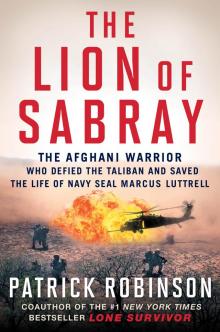 The Lion of Sabray
The Lion of Sabray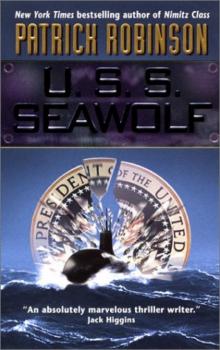 U.S.S. Seawolf am-4
U.S.S. Seawolf am-4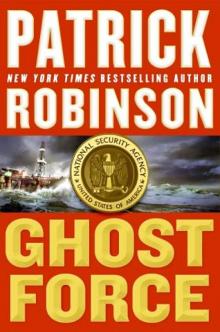 Ghost Force am-9
Ghost Force am-9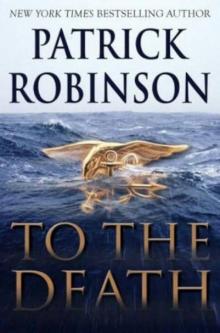 To the Death am-10
To the Death am-10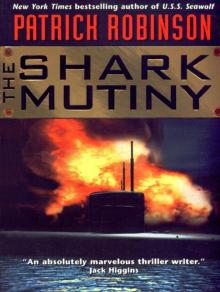 The Shark Mutiny
The Shark Mutiny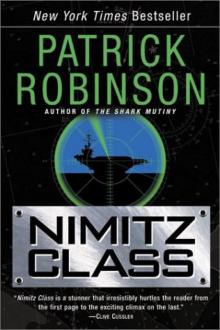 Nimitz Class am-1
Nimitz Class am-1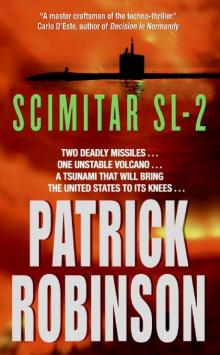 Scimitar SL-2 am-7
Scimitar SL-2 am-7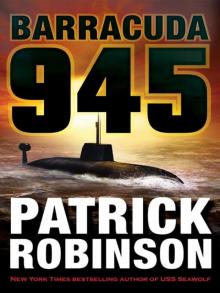 Barracuda 945
Barracuda 945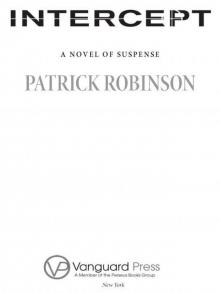 Intercept
Intercept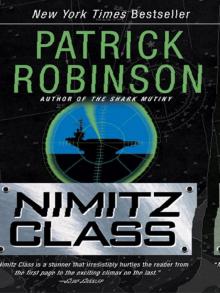 Nimitz Class (1997)
Nimitz Class (1997)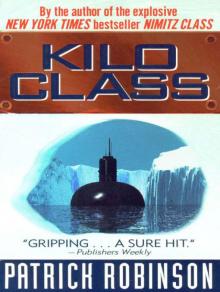 Kilo Class
Kilo Class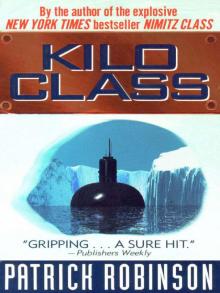 Kilo Class (1998)
Kilo Class (1998) Diamondhead
Diamondhead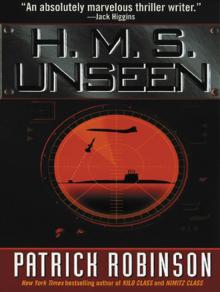 H.M.S. Unseen
H.M.S. Unseen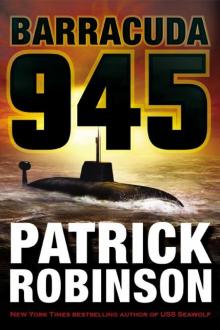 Barracuda 945 (2003)
Barracuda 945 (2003)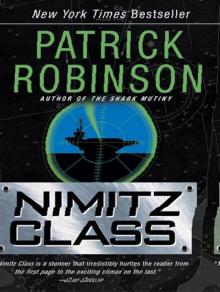 Nimitz Class
Nimitz Class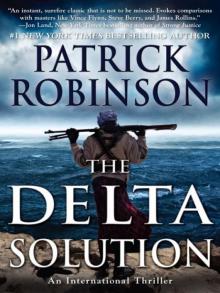 The Delta Solution
The Delta Solution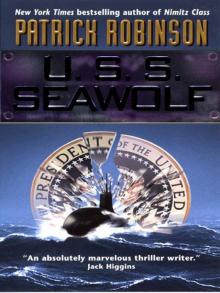 U.S.S. Seawolf
U.S.S. Seawolf